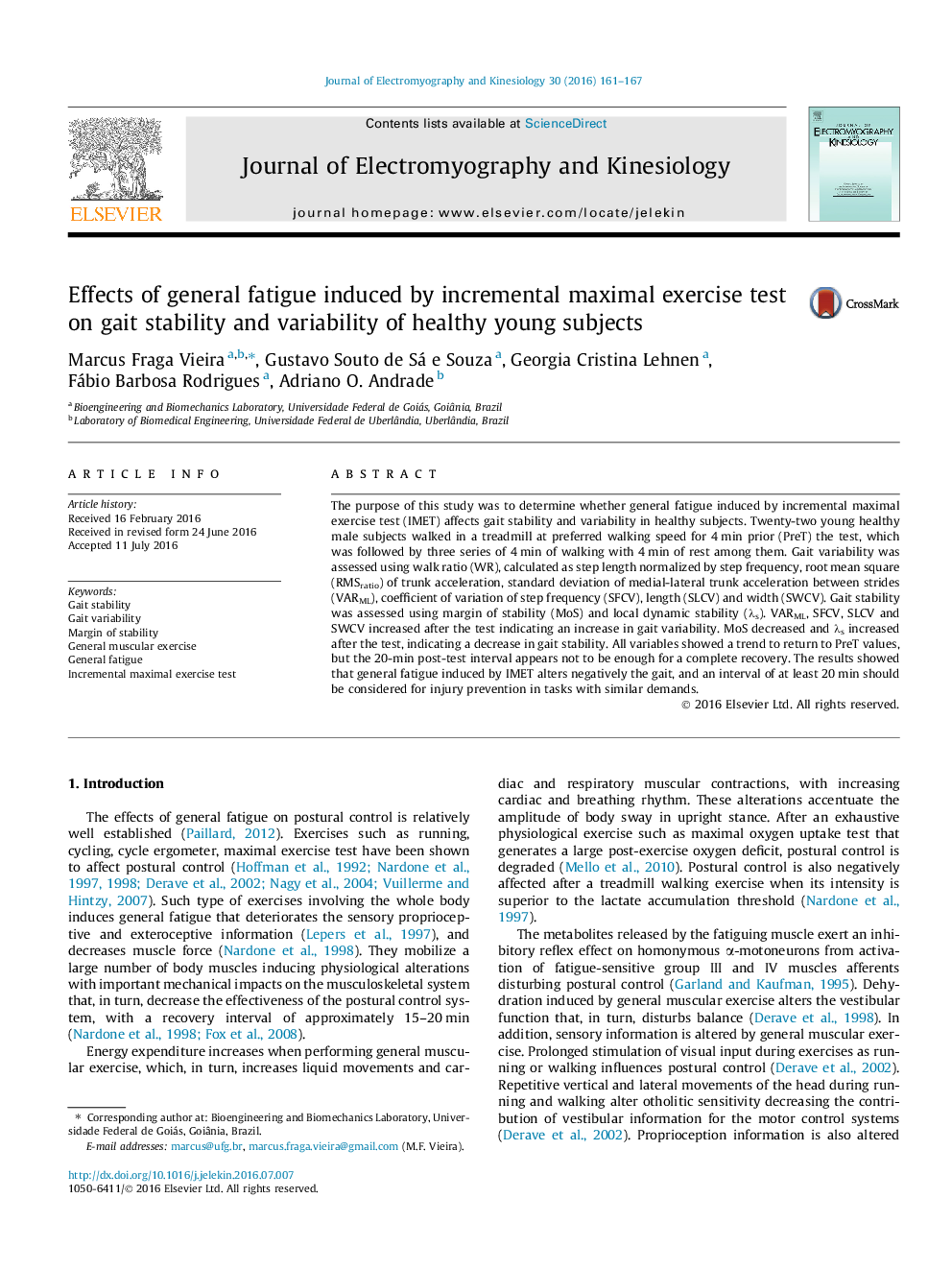| Article ID | Journal | Published Year | Pages | File Type |
|---|---|---|---|---|
| 4064365 | Journal of Electromyography and Kinesiology | 2016 | 7 Pages |
The purpose of this study was to determine whether general fatigue induced by incremental maximal exercise test (IMET) affects gait stability and variability in healthy subjects. Twenty-two young healthy male subjects walked in a treadmill at preferred walking speed for 4 min prior (PreT) the test, which was followed by three series of 4 min of walking with 4 min of rest among them. Gait variability was assessed using walk ratio (WR), calculated as step length normalized by step frequency, root mean square (RMSratio) of trunk acceleration, standard deviation of medial-lateral trunk acceleration between strides (VARML), coefficient of variation of step frequency (SFCV), length (SLCV) and width (SWCV). Gait stability was assessed using margin of stability (MoS) and local dynamic stability (λs). VARML, SFCV, SLCV and SWCV increased after the test indicating an increase in gait variability. MoS decreased and λs increased after the test, indicating a decrease in gait stability. All variables showed a trend to return to PreT values, but the 20-min post-test interval appears not to be enough for a complete recovery. The results showed that general fatigue induced by IMET alters negatively the gait, and an interval of at least 20 min should be considered for injury prevention in tasks with similar demands.
